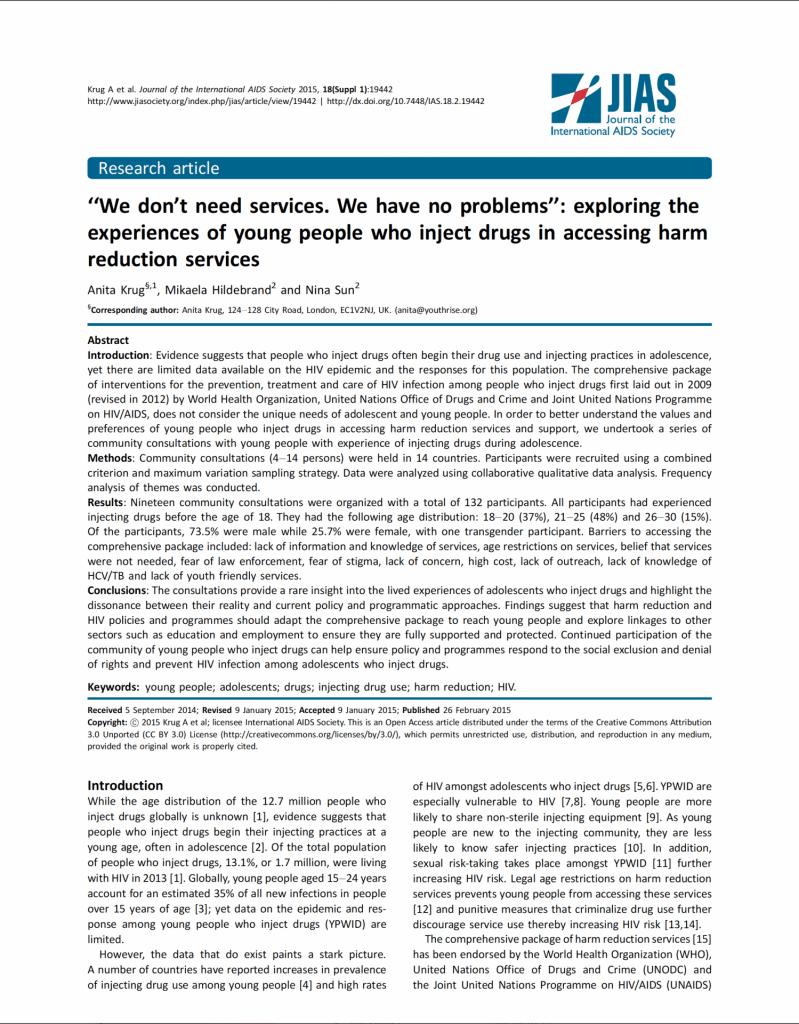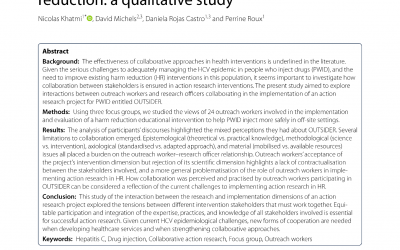View a downloadable version of the meeting summary
Article
Krug, A., Hildebrand, M. and Sun, N. (2015), “We don’t need services. We have no problems”: exploring the experiences of young people who inject drugs in accessing harm reduction services. Journal of the International AIDS Society, 18: 19442. https://doi.org/10.7448/IAS.18.2.19442
Access the article for free:
Article summary
This article is a study of the experiences of young people around the world when accessing harm reduction services. These services include syringe access programs, opiate substitution therapy, sexual health services, and health education. People were eligible to participate if they were 18 to 30 years old and reported injecting drugs before the age of 18. Researchers conducted 19 group interviews with 132 participants in 14 countries.
Participants reported several barriers to accessing harm reduction services. Organizational or societal obstacles (known as “structural barriers”) included age restrictions on accessing services, illegality of substance use, cost, and distance from home. Social barriers included possible identification as a person who injects drugs, and reliance on their partners for injection equipment among female participants.
Participants also mentioned other issues such as a lack of youth-friendly services and not knowing where or how to access services. Groups also shared that youth believed they did not need services because they hadn’t experienced negative consequences related to their drug use. Finally, the need for services outside of harm reduction—such as employment, legal, education, and support for street-involved youth—were highlighted among study participants.

Key Themes & Discussion Summary
The following themes came from the discussion:
Youth face barriers to getting harm reduction support
Many youth do not know how to access services such as HIV testing or syringe access programs. Females and LGBTQ individuals who inject drugs face additional stigma and discrimination.
Youth want services beyond harm reduction
Youth need services to meet their basic needs, such as employment and housing. Youth also want services for self-fulfillment, such as creative outlets and social opportunities.
Messaging for harm reduction should be specific for youth
Outreach efforts may better engage youth if messages focused on preserving fun and safety instead of reducing harm. Fear-based and punishment-centered language does not appeal to many youth.
Substance use research with youth is challenging
Research with youth often requires parental consent, which would involve disclosing substance use to parents. Researchers must balance ethical research practices with producing accurate knowledge.

